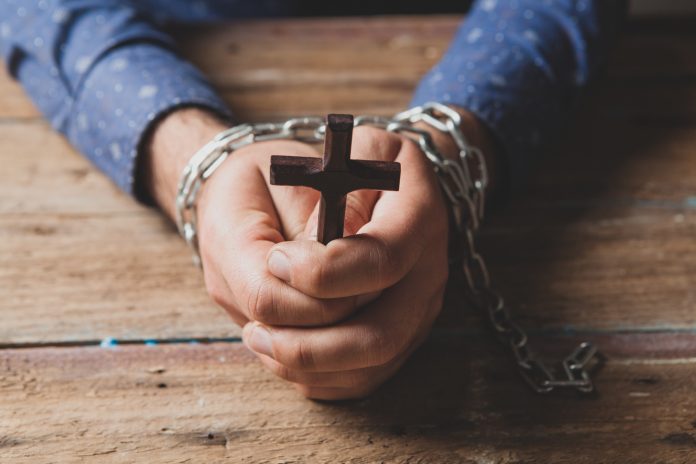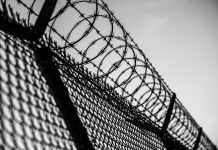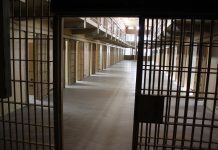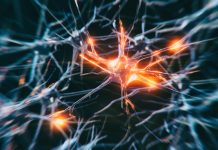David Buick, President of IPCA Worldwide, addresses the topic of prison chaplaincy and the need to reclaim space for the divine
The modern prison system developed in the West in the nineteenth century revolved around three central figures: the governor, the doctor, and the chaplain. The role of religion in society has undergone tremendous changes over the past few hundred years.
Still, prison systems across the world largely recognise the need for incarceration to be accompanied by some form of spiritual care, so much so that it is enshrined in Rules 65 and 66 of The United Nations Standard Minimum Rules for the Treatment of Prisoners (the ‘Nelson Mandela Rules’). (1)
As the prison walls close in, the importance of the transcendent emerges. Inmates are often directly confronted with moral issues that cannot be fully addressed by the criminal justice system alone: life and death, guilt and forgiveness, reconciliation and healing. Prisoners’ sudden removal from their normal lifestyle often leads them to take stock of their own lives and seek fresh meaning and purpose; some will embark on or resume a faith journey as a result.
The role of prison chaplains
Where do chaplains come into all this? Their role is best seen as liminal: “occupying a position at, or on both sides of, a boundary or threshold”. They are a human embodiment of the boundary between earthly realities and spiritual values. Does anyone else travel so quickly and often from outside the prison to its deepest recesses (such as a solitary confinement wing) – and back?
And who else in jail can interact on an equal footing with inmates, prison officers, administrative staff, and senior management? Through NGOs such as the International Prison Chaplains Association, chaplains provide a direct link between a prison cell and agencies such as the UN Office on Drugs and Crime, where they uphold prisoners’ rights, engage in advocacy for socially beneficial alternatives and complements to custodial sentences such as restorative justice.
As one of the rare religious figures frequently recognised in countries’ secular law, chaplains also act as cultural mediators between state authorities and religious belief systems, helping each better understand the workings and motivations of the other and demonstrating how they can work alongside rather than in opposition to each other – something that’s very much needed today.
Chaplains are all the more critical in prison management environments, increasingly focused on figures, productivity, and key performance indicators. While these are important in terms of the effective use of taxpayers’ money, they amount to what French legal scholar Alain Supiot has referred to as ‘governance by numbers’, (2) with an inherent tendency to overlook the most fundamental characteristic of inmates and staff alike: their essential nature and dignity as human beings.
Spiritual care and rehabilitation
Spiritual care and accompaniment of inmates facilitates their personal transformation and instils new habits that help both the individual and the wider community ‘live better’ whilst warding off the threats of religious radicalisation and violent extremism. Appropriate training for chaplains of all faiths, recognised by both religious bodies and the state, is vital in this respect.
The intangible yet essential nature of chaplaincy is also reflected in recent research into desistance – the processes by which delinquent individuals cease deviant behaviour and seek to become productive members of society. Sociologist Valerian Benazeth has highlighted the key contribution of ‘resource persons’ – including chaplains – who are both a model and an encouragement to desisters, noting that “most of the desistance process takes place outside the institutions”. (3)
In the same way that crime tends to slip through the net of the best-designed laws and enforcement measures, much actual rehabilitation seems to occur under the radar. That is the space chaplains sit in, and they are wellplaced to capture its realities and the processes accompanying it.
Prison chaplains offer food for thought
While their everyday work is mainly confidential, hard to quantify, and out of the public gaze, the role they play is invaluable and provides welcome insights into the contribution of religious belief and transcendence, not only in prison but also to society at large: about how, in the words of André Malraux, we can set about addressing the vital need to “find room for the gods once again”. (4) If you don’t know a prison chaplain, find one – and be ready to be surprised at the wealth of food for thought they can offer.
References
- https://www.un.org/en/un-chronicle/nelson-mandela-rules-protecting-rightspersons-deprived-liberty
- https://www.bloomsbury.com/uk/governance-by-numbers-9781509907748/
- The unmaking of crime: Contexts, pathways and representations of processes of desistance on the Parisian ground (Routledge, publication pending)
- A. Malraux, “L’homme et le fantôme”, L’Express, 21 May 1955.
Contributor Details
Editor's Recommended Articles
-
Must Read >> £100 million crackdown on crime in prison
-
Must Read >> £2.5bn education pledge from Lib Dems














